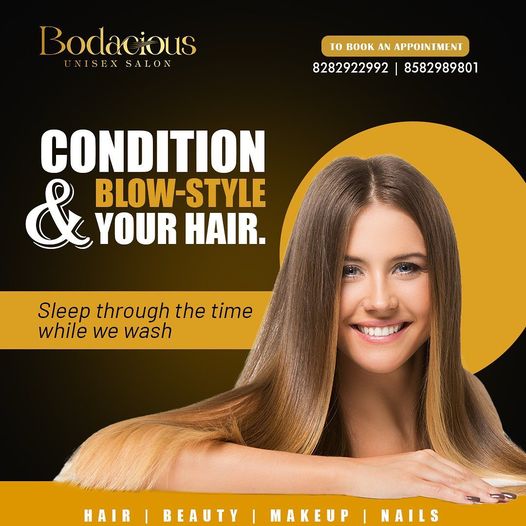Avoid Common Mistakes When Deep Conditioning Your Hair

A consistent deep conditioning plan can improve the lustre, strength, and health of almost anyone's hair. Deep conditioners, also known as hair masks, are often designed with plant-based butter, hydrolysed proteins, and moisturizing oils to coat and permeate the hair shaft. However, if you misuse a deep conditioner, your hair will struggle to receive all of the benefits it promises. Despite its impressive capabilities, this type of product is susceptible to a variety of errors.
A deep conditioner can help whether your hair has been damaged, dry, straight, or curly—but only if you understand exactly what you're doing. There are a few actions you must do before using the conditioner, some things to keep in mind while it is in your hair, and a few more things to consider while rinsing it out. Fortunately, you do not have to conduct much of your research. If you already know your hair type, this guidance, combined with the directions for the deep conditioner you picked, will assist you in correctly deep conditioning your hair for softer and more manageable locks.
Using Wrong Deep Conditioners for your Hair
The majority of deep conditioners are moisture or protein-based. Protein-based deep conditioners are intended to strengthen hair and reduce breakage, whereas moisture-based conditioners moisturize your locks. Depending on your hair type, one of these will undoubtedly benefit your hair more than the other. In general, moisture-based deep conditioners provide slides for detangling curly and textured hair and necessary moisture for healthy strands.
Protein-based deep conditioners should be applied to damaged strands subjected to multiple rounds of chemical treatments, hair dye, and hot tools. In addition to hydrating, a conditioner containing Algae extract and rosehip oil which are two components that can help mend damaged and over-processed hair. Unlike moisture-based deep conditioners, this type tries to mend your strands without weighing them down, particularly if you have straight or wavy hair.
Not Shampooing your Hair before Deep Conditioning
Choosing to skip a thorough shampoo before applying a deep conditioner is comparable to mopping the floors before cleaning. All it does is shift about the dirt and filth, making it more difficult to get rid of than when you began. Furthermore, when your strands are covered in oil or product build-up, the deep conditioner becomes less efficient because it cannot penetrate them as well.
Using too little or too much Deep Conditioners
Deep conditioning makes it difficult to use too much product at once. To be honest, even if you used the entire tub, most of the conditioner would wash out of your hair. Still, we don't recommend applying too much deep conditioner on your hair because most of these treatments aren't cheap. Use as much as you wish, but be aware not to squander the product.
Do not leave the Product for a longer time on your Hair
Although using too much deep conditioner will not cause problems, leaving it on for too long may. Believe it or not, it is possible to over-condition hair. There is even a fancy term for it: hygral weariness. Hygral exhaustion is produced by repeatedly putting excessive moisture into your hair follicles, causing them to inflate and deflate. This destroys the follicles and makes them more brittle and frizzy, ultimately undoing what you were trying to cure in the first place.
Add Heat to your Deep Conditioning Routine
It's not necessary, but adding heat to your deep conditioning process can significantly improve how well your hair keeps the product's effects. High porosity hair is usually dry and easily knotted. While it readily absorbs moisture, it has difficulty keeping it, so you feel as if you are continuously applying oil and other hydrating products to quench its thirst. Heat can be used to open your hair cuticles and assist your deep conditioner work more effectively. This helps the conditioner to go even deeper into your hair.
Don’t rinse your Hair with Hot Water
Hot water is not good for your hair or your skin. The heat of the water may feel good on your cold body and scalp, but you may be surprised by how drying it can be. Hot water irritates and dehydrates your entire body, including your hair, skin, and nails, which you work so hard to maintain. Simply bringing down the heat can help with acne, thickening your hair, and smoothing your skin.
Avoid Common Mistakes When Deep Conditioning Your Hair at Unisex Salon Kolkata


Comments
Post a Comment